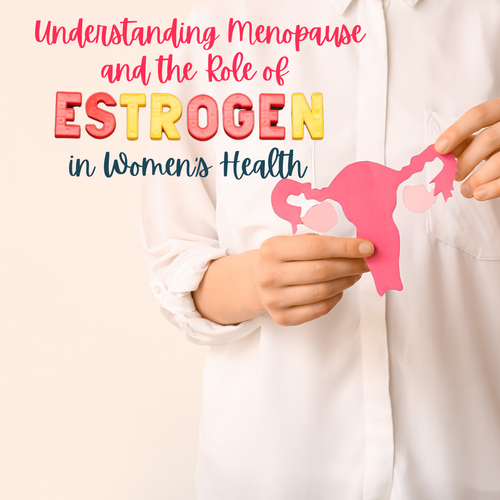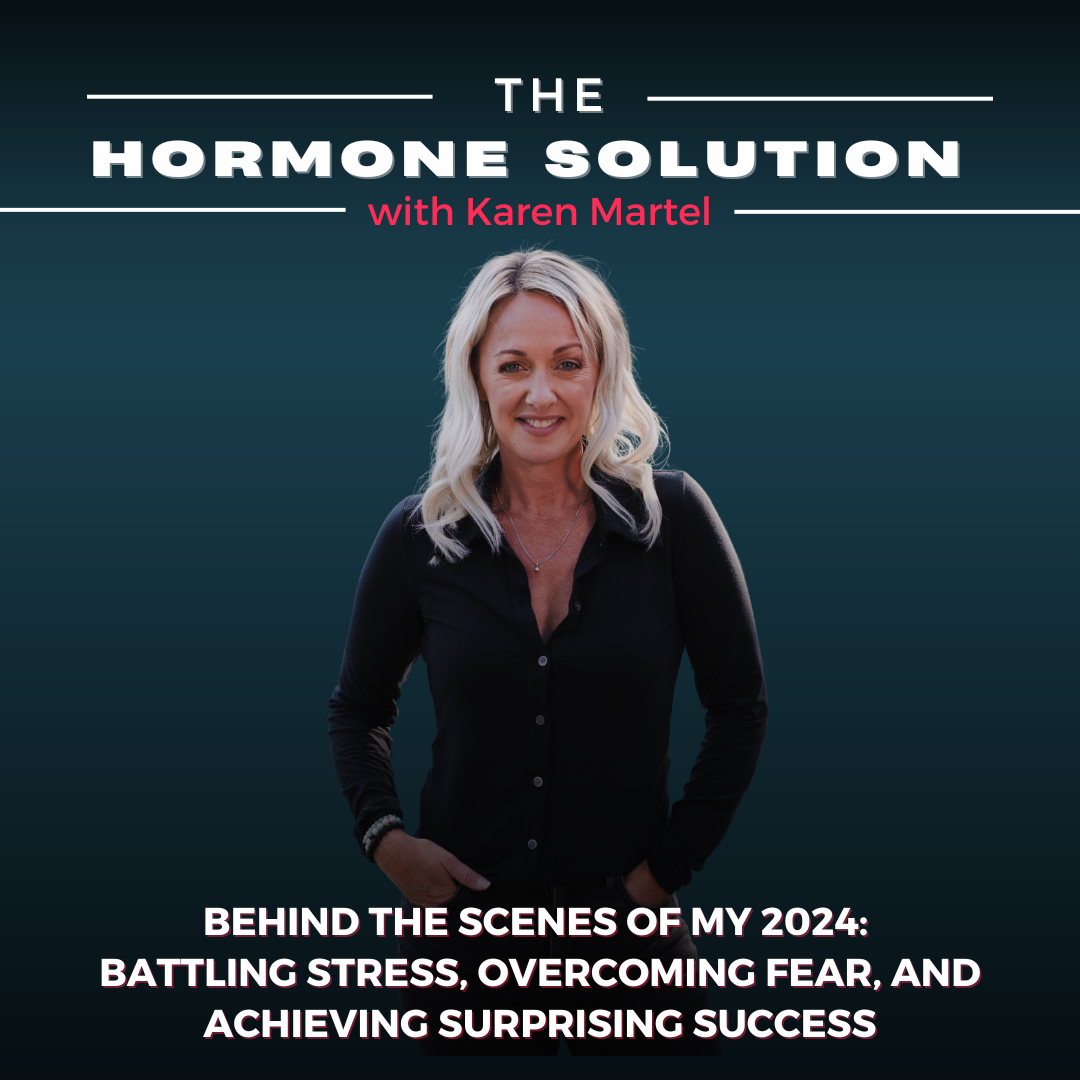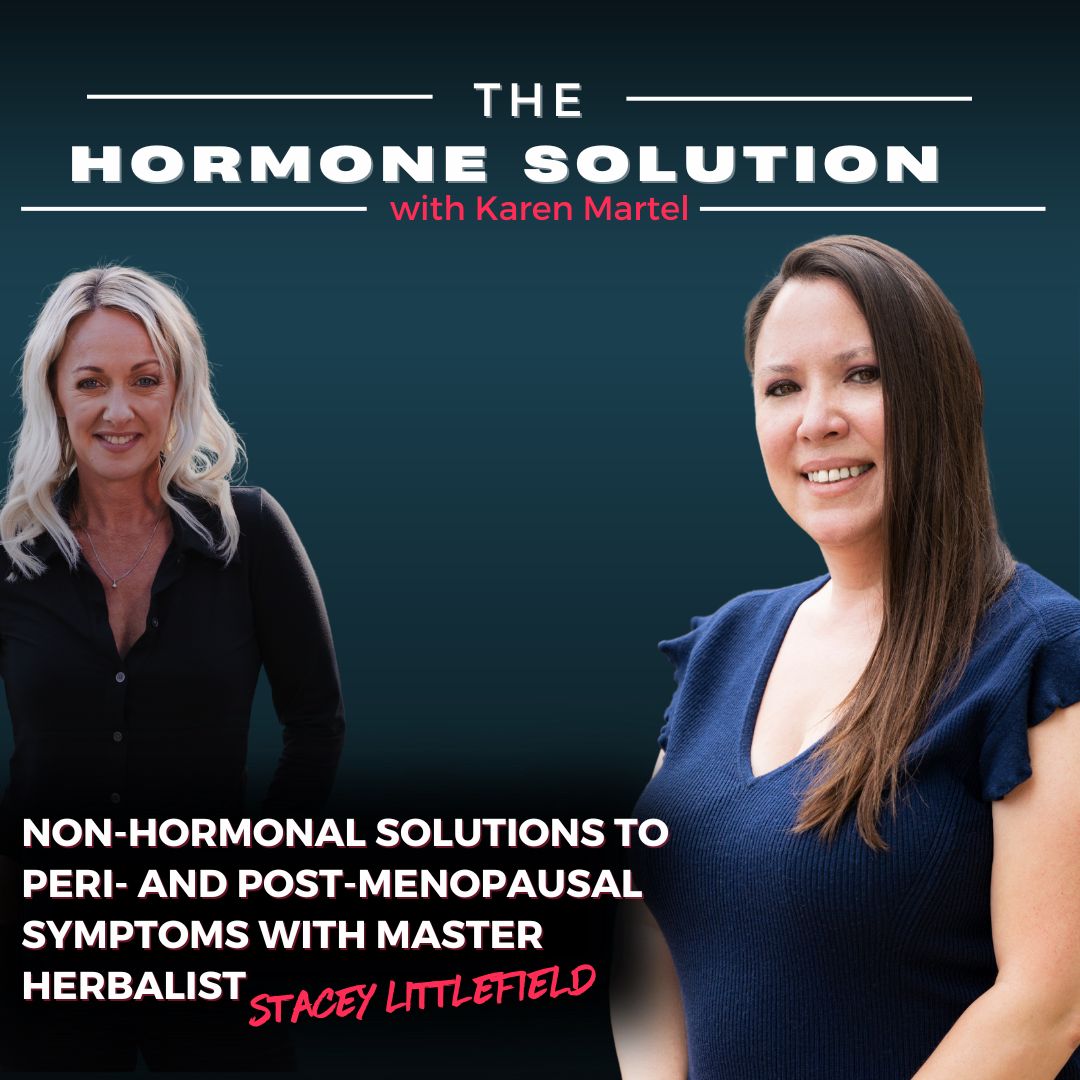
Understanding Menopause and the Role of Estrogen in Women’s Health
Menopause—that pivotal stage in a woman’s life—is a natural biological process signaling the end of reproductive years. It typically shows up between ages 45 and 55, bringing with it hormonal shifts that can turn life upside down. Estrogen and progesterone, the key players in a woman’s hormonal orchestra, take a nosedive during this time, leading to all sorts of physical and emotional changes. Understanding estrogen’s role during and after menopause is key to managing symptoms and safeguarding your health.
The Great Estrogen Decline
As menopause approaches, the ovaries start to downshift, producing less estrogen. This hormonal rollercoaster can bring on some familiar but frustrating symptoms: hot flashes, night sweats, mood swings, and vaginal dryness (North American Menopause Society, 2021). In premenopausal years, estradiol (E2) is the dominant form of estrogen. Post-menopause, estradiol steps aside, and estrone (E1) takes the lead—but it’s not quite as effective, which can cause ripple effects throughout the body (Fogle et al., 2007).
Health Risks Tied to Low Estrogen Levels
Cardiovascular Health
Estrogen has long been celebrated as the heart’s secret ally. It keeps blood vessels flexible and regulates cholesterol. But when estrogen levels drop, LDL (the “bad” cholesterol) starts climbing while HDL (the “good” cholesterol) takes a hit. This shift raises the risk of coronary artery disease, which catches up to men’s risk by age 70 (Mosca et al., 2011).
Bone Density
Estrogen is like scaffolding for your bones. Without it, bone density declines faster than you can say “osteoporosis.” Postmenopausal women face a higher risk of fractures, particularly those who experience severe menopausal symptoms (Cummings & Melton, 2002). Getting enough calcium and vitamin D can help, but it’s no substitute for addressing the root cause.
Mental Health
Let’s talk about mood. Estrogen fluctuations can wreak havoc on emotional well-being, causing mood swings and heightened anxiety during perimenopause. Interestingly, while depression may spike during this transitional phase, many women report feeling better emotionally once they’re past menopause (Schmidt et al., 2004).
Urinary and Vaginal Health
Low estrogen can lead to vaginal atrophy, making urinary tract infections (UTIs) and urinary incontinence more common. Suddenly, frequent bathroom trips or leakage during exercise may become part of daily life (Robinson et al., 2013).
Hormone Replacement Therapy (HRT): A Lifeline?
For many women, Hormone Replacement Therapy (HRT) offers relief from the relentless symptoms of menopause. HRT can help with hot flashes, night sweats, and even bolster bone density and heart health. However, it’s not one-size-fits-all. It’s essential to discuss your personal health history and risks with your healthcare provider to determine if HRT is the right fit (Manson et al., 2017).
Lifestyle Strategies to Thrive Through Menopause
While medical treatments can be game-changers, lifestyle tweaks also play a starring role in managing menopause:
- Diet: Fuel your body with a balanced diet rich in calcium, vitamin D, and healthy fats.
- Exercise: Regular workouts help maintain muscle mass, improve mood, and support heart health.
- Stress Management: Yoga, meditation, or even deep breathing can make a world of difference.
The Bottom Line
Menopause is a major life transition, but it doesn’t have to be a crisis. By understanding the role estrogen plays in your health, you can take proactive steps to feel your best. Whether you choose lifestyle changes, HRT, or a mix of both, knowledge is your most powerful tool. Menopause might mark the end of one chapter, but with the right approach, it’s the beginning of a vibrant, empowered new one.
Citations:
- Cummings, S. R., & Melton, L. J. (2002). Epidemiology and outcomes of osteoporotic fractures. The Lancet, 359(9319), 1761-1767.
- Fogle, R. H., Stanczyk, F. Z., Zhang, X., & Paulson, R. J. (2007). Ovarian androgen production in postmenopausal women. Journal of Clinical Endocrinology & Metabolism, 92(8), 3040-3043.
- Manson, J. E., Chlebowski, R. T., Stefanick, M. L., et al. (2017). Menopausal hormone therapy and health outcomes during the intervention and extended poststopping phases of the Women’s Health Initiative. JAMA, 318(10), 927-938.
- Mosca, L., Barrett-Connor, E., & Wenger, N. K. (2011). Sex/gender differences in cardiovascular disease prevention. Circulation, 124(19), 2145-2154.
- North American Menopause Society. (2021). The 2021 hormone therapy position statement of the North American Menopause Society. Menopause, 28(9), 973-997.
- Robinson, D., Cardozo, L., & Peschers, U. (2013). Postmenopausal urinary incontinence. Maturitas, 76(3), 240-244.
- Schmidt, P. J., Murphy, J. H., Haq, N., et al. (2004). Depression in women in the menopausal transition. American Journal of Psychiatry, 161(8), 1339-1346.

Find Karen Martel on Apply Podcast
Karen Martel is a Certified Hormone Specialist and Transformational Nutrition Coach dedicated to empowering women through their health journeys.
As the host of the popular podcast The Hormone Solution, Karen tackles the complexities of hormonal health, weight loss resistance, and the challenges that come with perimenopause and menopause.
Her mission is to disrupt outdated narratives surrounding women's health, providing reliable information and practical solutions that help women reclaim their vitality. With personal experience overcoming her own health struggles, Karen offers insights into hormone optimization and sustainable weight management strategies.
Join her as she engages in enlightening conversations with experts and shares actionable advice, all aimed at helping women navigate their unique hormonal landscapes with confidence and clarity. Tune in to discover how to embrace life's stages while enhancing overall well-being.






